'Made in Armenia': the struggle of local producers for a place in their own market
Armenian goods have a chance to establish themselves on the local market and replace Turkish goods, the import of which was temporarily prohibited in the country starting January 1, 2021.
Local producers are now competing for a place in their own market.
Moreover, this is happening in the context of the economic crisis, which led to the lockdown announced in connection with the coronavirus and the second Karabakh war.
The decision to ban the import of Turkish goods was made by the government of Armenia while the fighting was still going on, on October 20, 2020. It was justified by security problems – taking into account the open support that Turkey provided to Azerbaijan during the war.
“The ban on the import of Turkish-made goods stops the replenishment of the Turkish treasury from Armenian sources, while at the same time it prevents the penetration of possible threats into Armenia when importing final goods from a hostile country,” the government said in a statement.
How the coronavirus pandemic and the war affected business, what steps are being taken by local manufacturers to overcome the crisis and gain a foothold in their own market, to what extent they will be able to replace Turkish goods.
- Experts on the meaning behind Biden’s statement on the Armenian genocide
- PoWs, construction of new nuclear power plant in Armenia: Putin-Pashinyan talks in Moscow
- From the dock to the elections: plans of the ex-President of Armenia Robert Kocharian
- Six Georgian startups that got their boost from the pandemic
About the situation – in figures
In 2020, during and after the lockdown, 32,295 private entrepreneurs and limited liability companies closed or temporarily ceased activities, 25,082 registered – that is, 7,213 fewer. This negative balance in previous years, according to the State Revenue Committee, was several times less: -967 (2019) and -463 (2018).
As for imports from Turkey, in January 2021 its volume amounted to $ 2.24 million. Compared to the same period last year, this figure decreased by 81.3%, not 100%, since the import of raw materials has not yet been banned.
In 2019, the total amount of imports, according to the Ministry of Economy, amounted to $ 268.1 million, in particular,
- clothing – for $ 69.4 million,
- equipment and mechanisms – for $ 35.3 million,
- oil and oil products – by $ 24.3 million,
- chemical industry products – by $ 23.6 million,
- base metals and items from them – by $ 21.6 million.
The Ministry of Economy considered the possibility of importing the listed goods from other countries, as well as the feasibility of local production of some of them and came to the conclusion:
“In general, the bulk of the goods imported from Turkey can be replaced with products of comparable quality, but the transition to substitutes will take some time.”
Export expert Anna Beklyarova regrets that many existing Armenian brands are under-represented in the country:
“There is a question of increasing demand for Made in Armenia. The market is filled with Turkish goods, and it turns out that Made in Turkey is in demand in our market, but Made in Armenia is not. We have not yet succeeded in the domestic market, where we have to export ”.
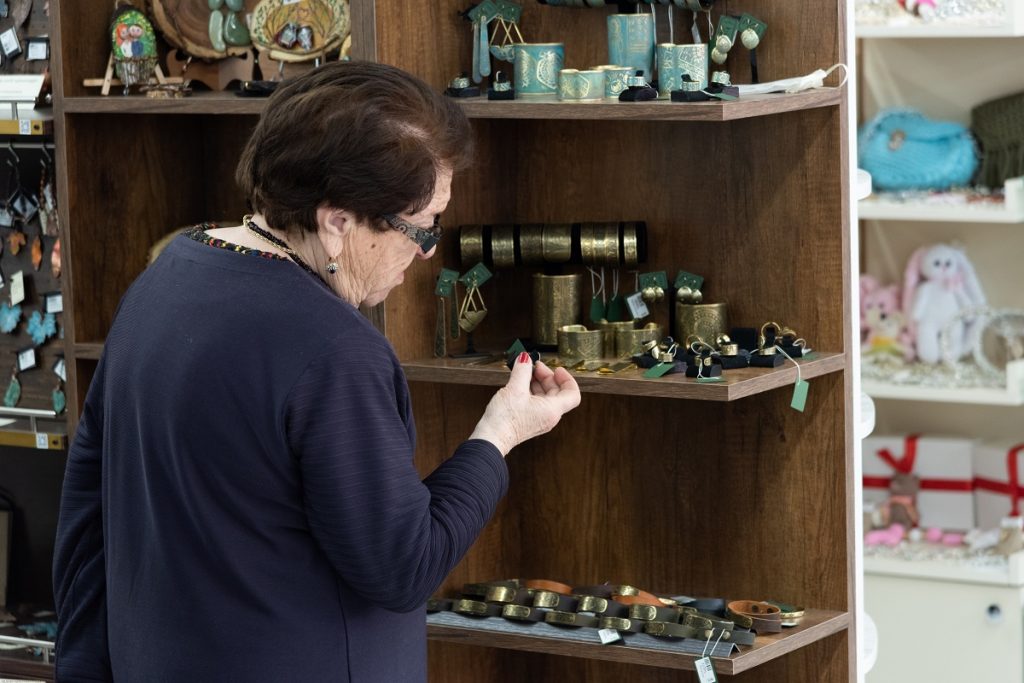
Local market after the war
“No Turkish goods”, “Only Armenian goods.” Similar slogans in Armenia began to sound louder after the war in Karabakh. The general emotional background led to the opening of the National Supermarket, which brought together local producers.
“The beginning was difficult because people were afraid that the project would not work. There is no government support, many in government agencies do not even know about the existence of this mall. This is not a charitable, but a business project, but we are trying to make it as profitable as possible for its participants, ”says Anna Beklyarova, an export expert at the National Supermarket.

The mall employs over 340 manufacturers and the number is growing. Its main advantage is that not only registered organizations, but also individuals can be represented here. This provides an opportunity for novice manufacturers to introduce their products to the market and check whether they will generate interest.
One of these “individuals” is a retired, 66-year-old artist Vahagn Grigoryan, who presents his works here in the form of an ikebana made of dried flowers. He is not very computer savvy, heard about the National Supermarket on TV and decided to join his work.
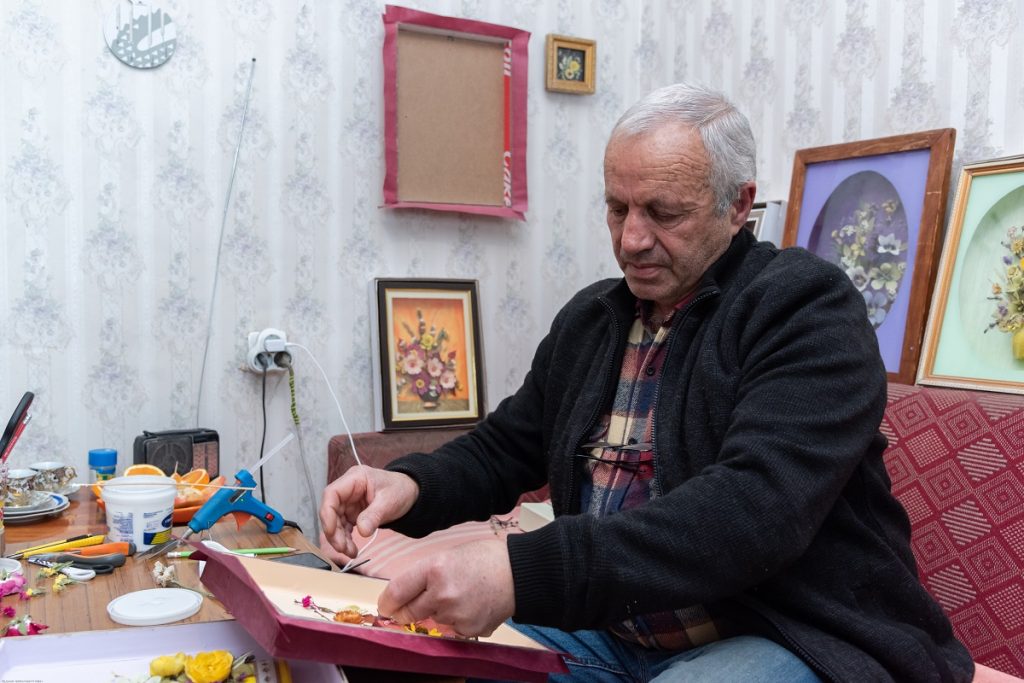
“I am surprised what interesting work young people are doing, and I do not want to give in to them. I joined this shopping center to learn from them, ”says Vahagn.
And for those who use the network information more, the “National Brand” page and the “For the Armenian” group on Facebook have been opened. Their goal is to support local producers, to present Armenian-made products to consumers. The pages were created by Flora Vardanyan. She believes that the main drawback of local producers is the lack of branding, that is, their own face.
Export expert Anna Beklyarova agrees with her. She encourages manufacturers to take care of their image, create presentations of their products, ensure high quality and think about increasing production:
“The biggest problem in our market is that one day people wake up and decide to go into business without first researching the market and trends. Now the emotional background in the local market is favorable for local producers. But they need not to fall into euphoria, but to figure out what problems they have in the market, to try to improve the quality so that in the future, when the emotional background subsides, they can maintain their positions. “
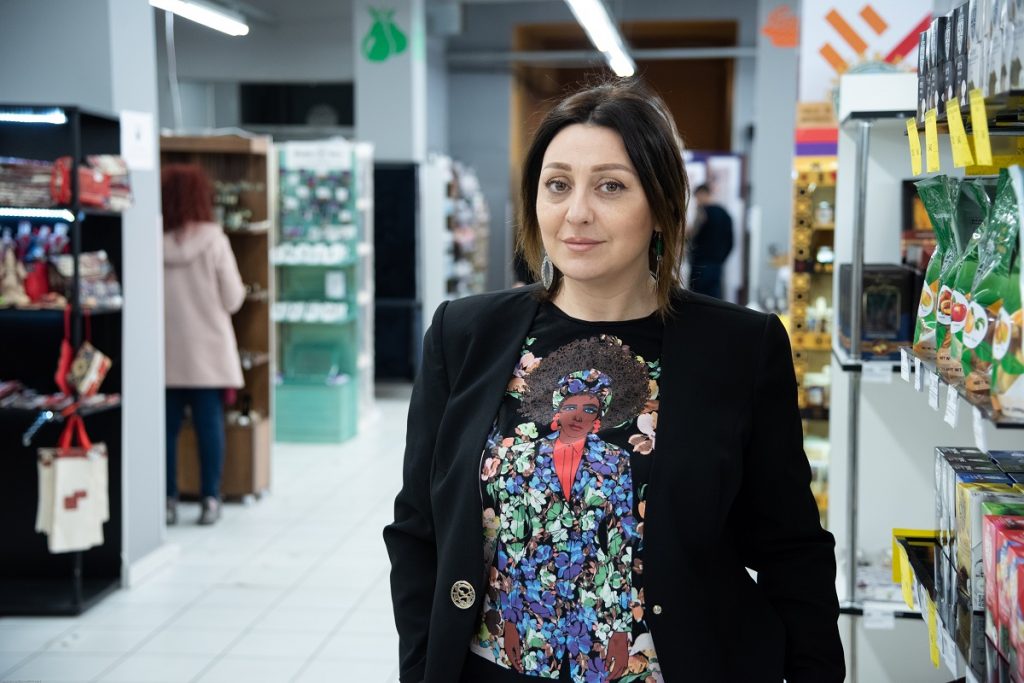
Consequences of the coronavirus
The pandemic has taken a heavy toll on local businesses, especially the service sector. The founders of the “Tai” company, Vardan Asryan and Ashot Parsyan, say that for 9 years of their work this was the most difficult test, as they had to close all their massage parlors for two months.
“You have to be flexible, especially in a country like Armenia. You must always keep your finger on the pulse, be prepared for everything and find solutions under any circumstances. In any difficult situation, a new chance appears, which you did not notice when there was a favorable situation, ”37-year-old Ashot Parsyan is sure.
The Tai company specializes in Thai massage, all massage therapists are from Thailand.
“During the lockdown, we managed to keep all the employees, although they themselves did not want to leave, because the situation in Thailand was much more complicated. The main source of income there is tourism, and most of our clients are local residents, ”says Vardan Asryan.
Both businessmen are confident that their company was saved by the fact that they did not panic and showed flexibility. The result is obvious. Many of their competitors closed during the pandemic, and they not only kept the business, but also opened a new branch, as the demand for massage increased.
Alternative to Turkish goods
Turkish textiles are very popular in the Armenian market. But Armenia has always had potential in this area. There are many manufacturers, only most of them bring raw materials from Turkey. Until this is prohibited, at this stage the embargo does not apply to the import of raw materials.
And the company “Anitex”, which entered the market last year and has already managed to conquer almost all supermarkets, brings raw materials from China.
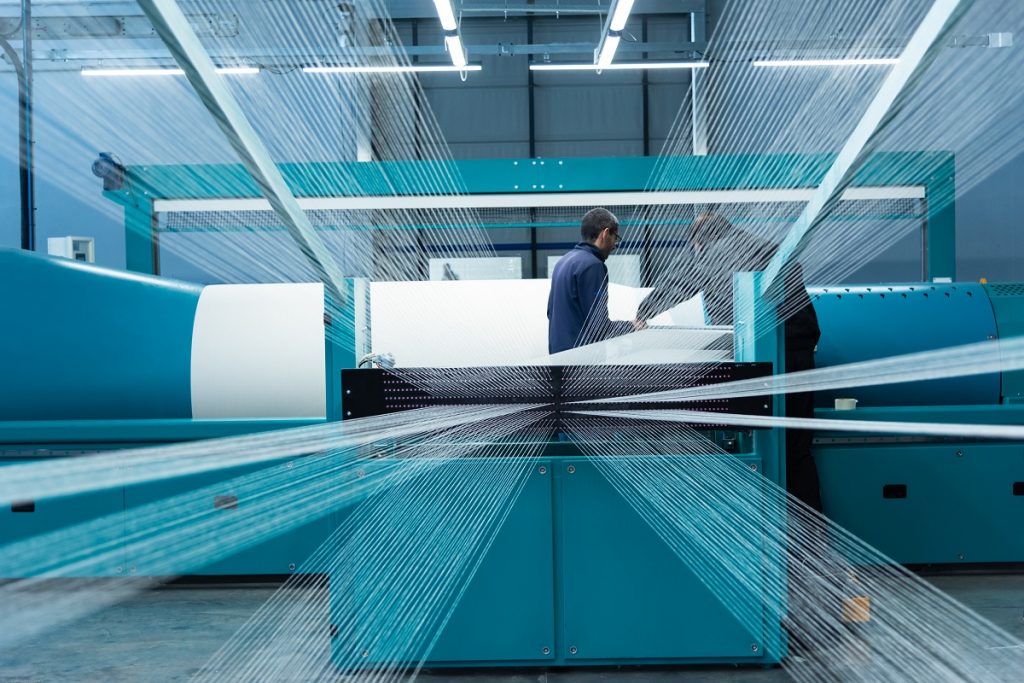
“Our principle is to avoid everything Turkish, we have good connections in China, and we initially imported raw materials from there,” says CEO of the company Peter Nazarian.
The Nazarian family is from Lebanon. Three years ago they decided to start a business in Armenia. The building of an abandoned factory in the village of Vorotan was renovated, and from May 2020 the company began production.
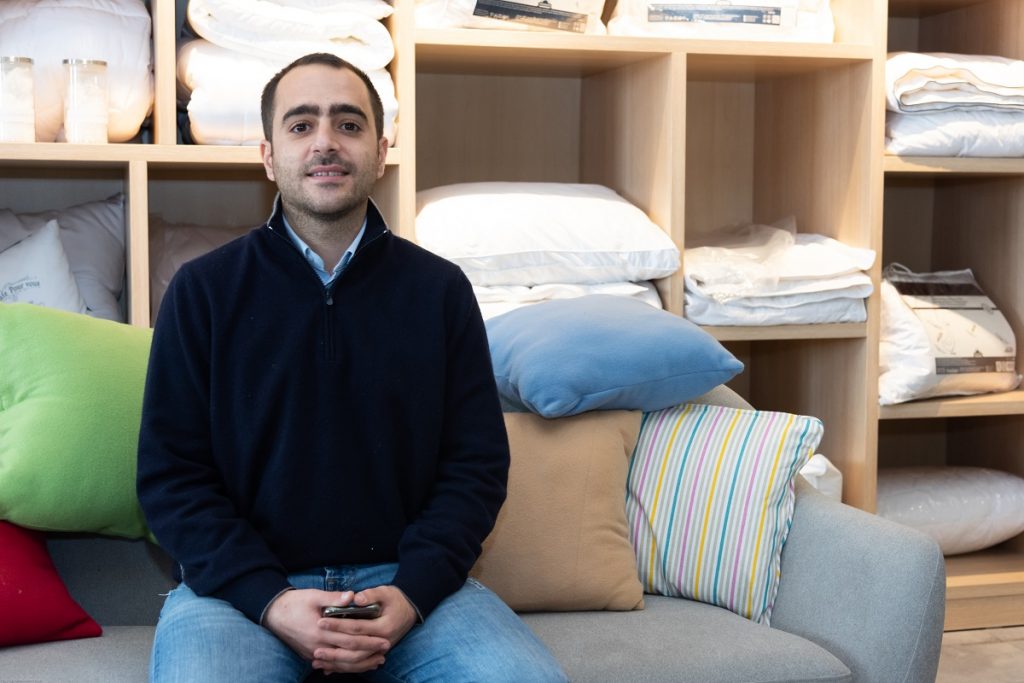
The director of the company, Peter, is 31 years old. The young businessman took the risk, decided to start production during the coronavirus pandemic and was successful. During the war, he also showed flexibility and repurposed the factory – starting the production of sleeping bags and camouflage, which were sent to the border.
Now the company produces 145 products: pillows, towels, bed linen, bathrobes. The factory, in which serious investments have been made, cannot be limited only to the Armenian market. Products are imported to the countries of the Middle East, Africa, EU and EAEU. However, the company’s main market is Russia.
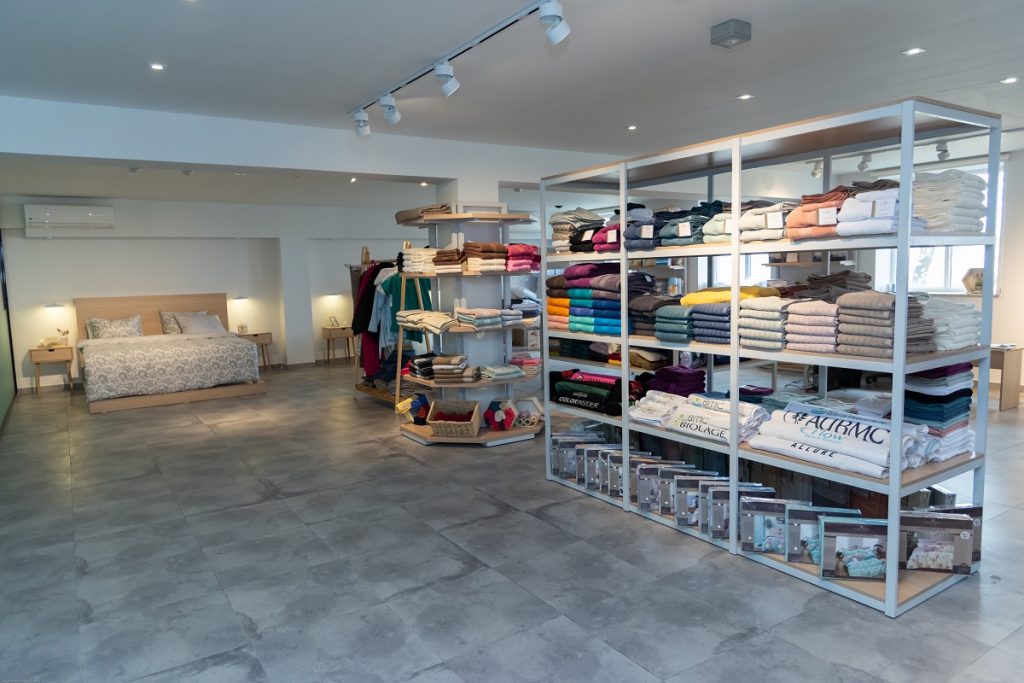
“We produce two tons of towels every day, but we can potentially produce 18. And we are now moving towards that goal,” says Peter.
At this point, the factory employs 160 people, but it could potentially have 500 employees.
The entrepreneur regrets that Armenia is not attractive for foreign businessmen: the logistics are complicated, there are no roads, there should at least be state support:
“If we compare with neighboring Georgia, investors have much more advantages there than in Armenia. If we were not Armenians, if our goal was not to create a factory in Armenia, we would never have invested here. Taxes are high. It is clear that the government is thinking about how to replenish the budget – with the help of taxes. But especially after the war, it is impossible to restore the economy only at the expense of Armenian producers, you need to attract foreign investors, and for this you need to create conditions. “
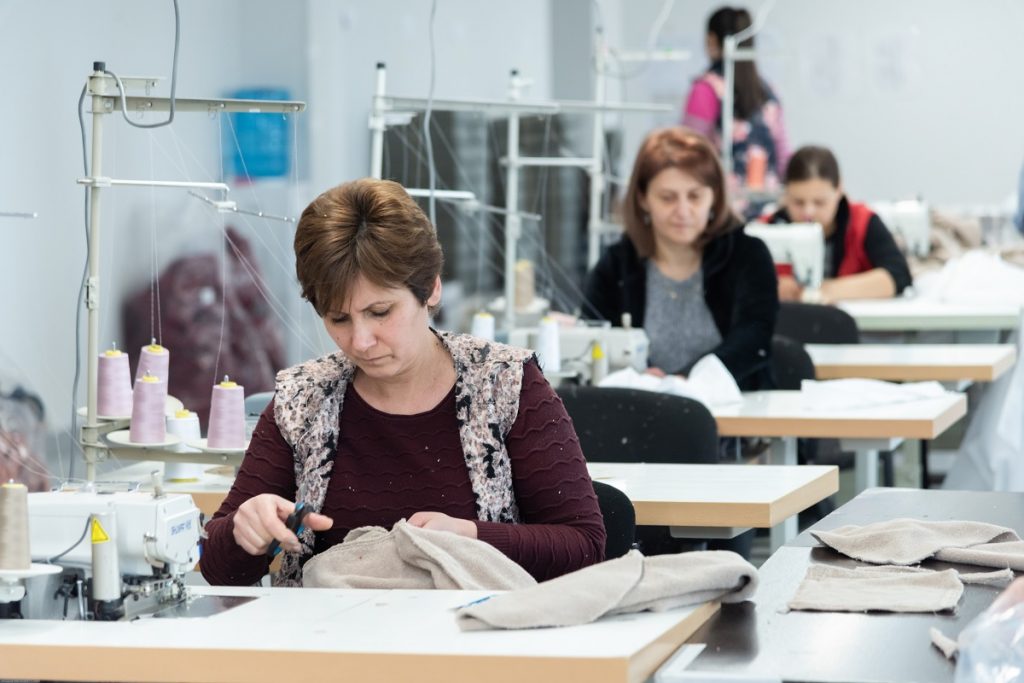
Peter says he is happy about the ban on imports of Turkish goods, but they urgently need to find an alternative:
“I think our government should think about how to develop local production, and not prohibit the import of goods from other countries to Armenia.”


















